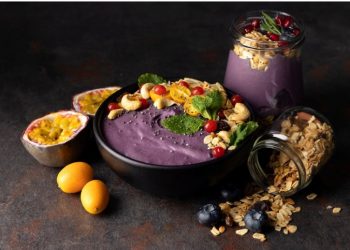Stomach bloating is a common condition that many people experience. It is characterised by a feeling of fullness and tightness in the belly, often accompanied by visible swelling or distension. This discomfort can be caused by a variety of factors, and understanding these can help in finding ways to alleviate the condition.
Common Causes of Stomach Bloating
Stomach bloating can be caused by several factors, including:
Swallowing Air: This can occur when you eat or drink too quickly, talk while eating, or consume carbonated beverages.
Constipation: When bowel movements are infrequent or difficult, it can lead to a buildup of gas in the intestines, causing bloating.
Gastroesophageal Reflux Disease (GERD): This condition, which causes acid reflux, can also lead to bloating.
Irritable Bowel Syndrome (IBS): This is a common disorder that affects the large intestine and can cause bloating, along with other symptoms such as abdominal pain, and changes in bowel habits.
Lactose Intolerance and Other Food Intolerances: Some people are unable to digest certain types of food, such as lactose, which can lead to bloating.
Overeating: Consuming large quantities of food can cause your stomach to stretch, leading to bloating.
Small Intestinal Bacterial Overgrowth (SIBO): This condition occurs when there is an excessive amount of bacteria in the small intestine, leading to bloating and other symptoms.
Certain Medications: Some medicines, such as the oral diabetes medicine acarbose, and foods containing lactulose or sorbitol, may cause bloating.
More serious disorders that may cause bloating include ascites and abdominal tumours, celiac disease, dumping syndrome, ovarian cancer, and problems with the pancreas not producing enough digestive enzymes (pancreatic insufficiency).
How to Alleviate Stomach Bloating
The first line of treatment for preventing gas and bloating is often a change in diet. A low FODMAP (fermentable oligosaccharides, disaccharides, monosaccharides, and polyols) diet can reduce the symptoms of gas and IBS. These are types of carbohydrates that aren’t fully absorbed in the gut and can trigger symptoms in some people.
Here are some tips to prevent bloating:
Avoid Overeating: Try to eat smaller, more frequent meals instead of three large ones.
Stay Hydrated: Drink plenty of fluids, preferably water, to help prevent constipation and keep your digestive system functioning properly.
Exercise Regularly: Physical activity can help stimulate the muscles in your gut, helping to prevent constipation and bloating.
Avoid Foods Known to Cause Gas: Some foods are more likely to produce gas in the digestive system, including beans, lentils, broccoli, cabbage, onions, and carbonated drinks.
Consider a Low FODMAP Diet: If you’re sensitive to certain types of carbohydrates, a low FODMAP diet could help. This involves cutting out certain foods and then slowly reintroducing them to see which ones are causing problems.
Seek Medical Advice: If you’re experiencing chronic bloating, it’s important to consult a healthcare professional to rule out more serious conditions.
Keep in mind that everyone is different, so what works for one person may not work for another. It’s important to listen to your body and find what works best for you. If you’re experiencing persistent bloating, don’t hesitate to seek medical attention. Chronic bloating could be a sign of a more serious underlying condition that needs to be addressed.
Lifestyle Changes and Home Remedies
In addition to the tips mentioned above, there are several lifestyle changes and home remedies that can help alleviate bloating:
Probiotics: These are beneficial bacteria that can improve digestive health. They are available in certain foods, such as yoghurt, and as dietary supplements.
Peppermint Oil: Some studies suggest that peppermint oil may reduce bloating and other symptoms of IBS.
Abdominal Massage: Gently massaging your abdomen can help stimulate the muscles that propel digestive contents along the gastrointestinal tract, helping to relieve bloating.
Mindful Eating: Paying attention to what and how quickly you’re eating can help prevent swallowing air and overeating, both of which can lead to bloating.
Quit Smoking: Smoking can lead to swallowing air, which can cause bloating.
Wrapping Up
Stomach bloating is a common and often bothersome condition. However, by understanding its causes and implementing dietary changes and other preventive measures, it’s possible to manage this condition effectively. Remember, if you’re experiencing persistent or severe bloating, it’s important to seek medical advice to rule out any serious underlying conditions.









